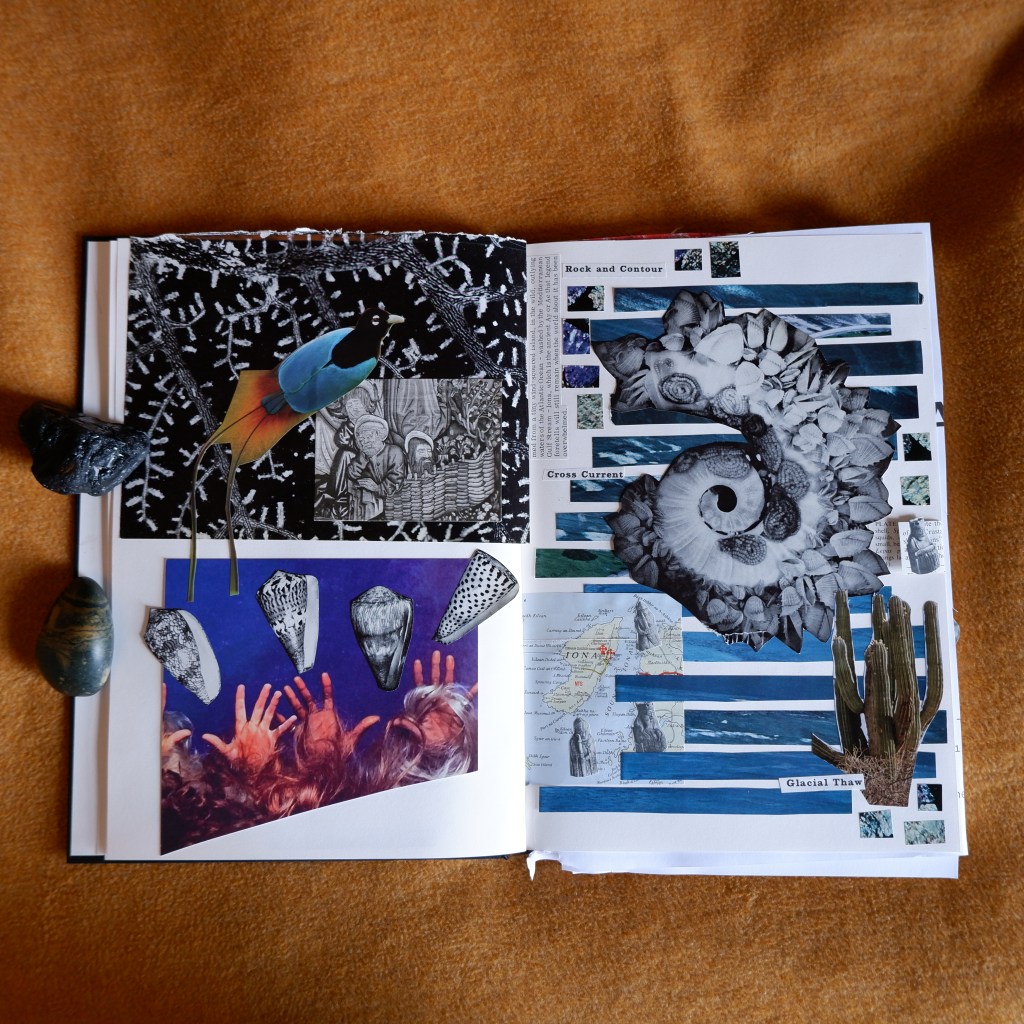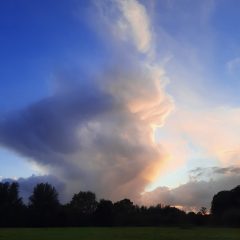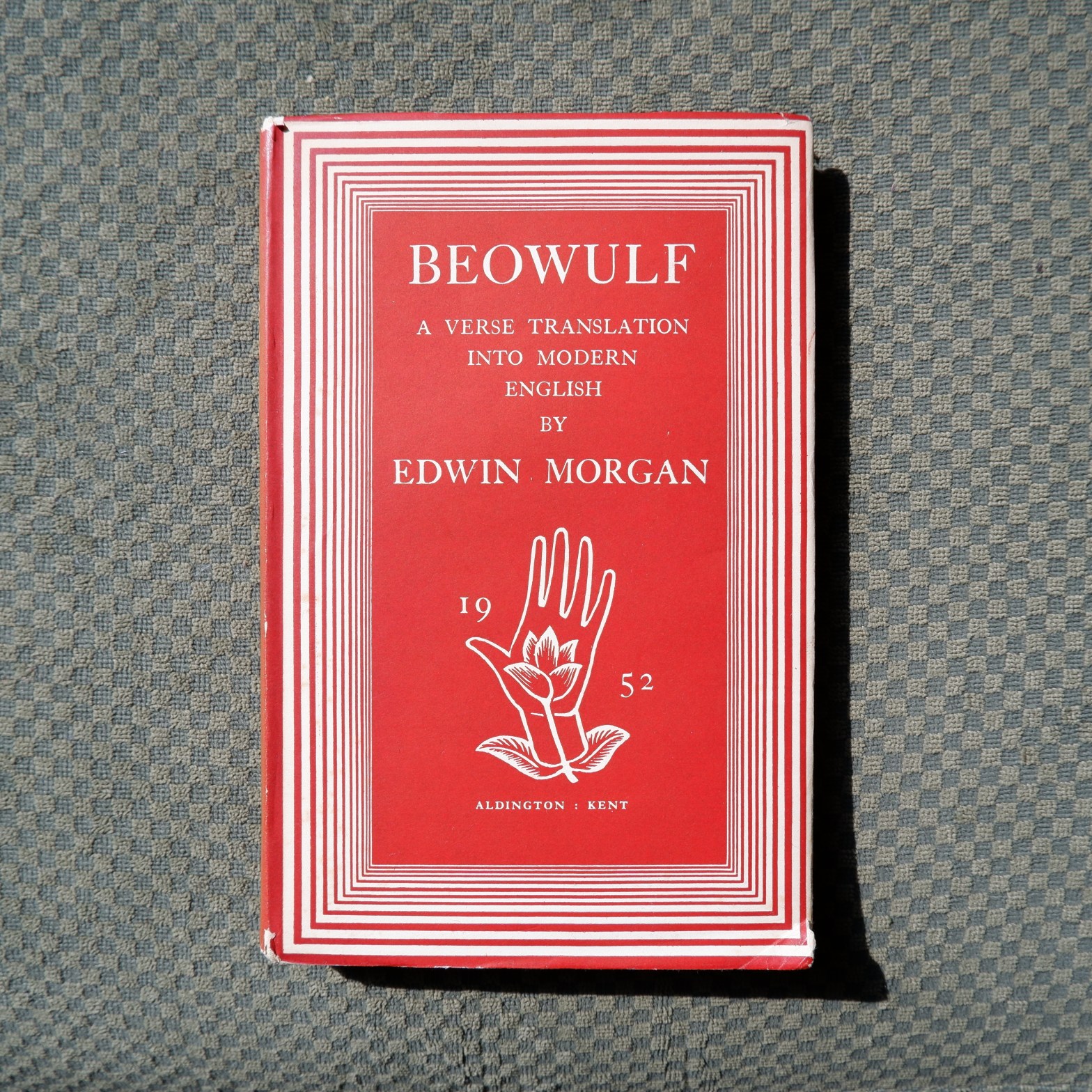I spent March in Glasgow for a Research Fellowship with the Archives and Special Collections of the University Library, long delayed from 2020 because of the pandemic. I had been dreaming of Glasgow for a long time, often through the poetry of Scots Makar and Glasgow Laureate Edwin Morgan, whose archive my fellowship research was focused on.
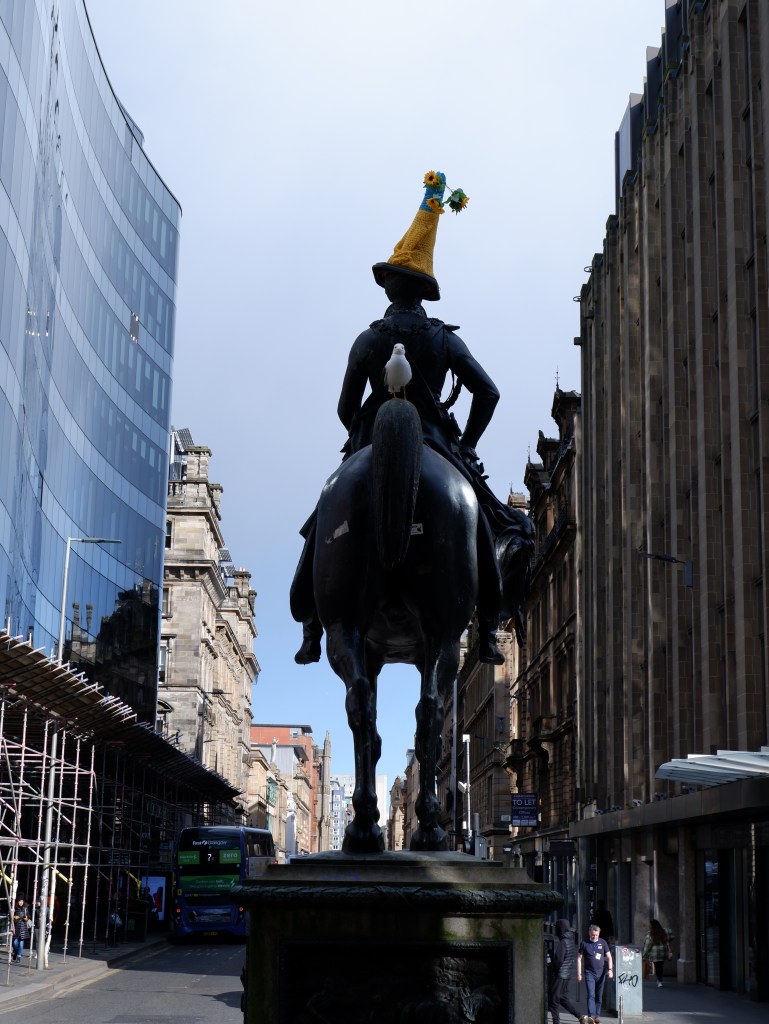
This week the Library published a blogpost that I wrote about my work with Morgan’s ‘vast, unruly and magnificent’ scrapbooks and their relationship to the early medieval poetry, such as Beowulf, that Morgan was translating in the early part of his career.
[In the scrapbooks] medieval fragments jostle for space alongside pictures of jellyfish, sea anemones and goose barnacles, photographs of blasted snow-bound mountains, or surreptitious allusions to queer desire, as well as news items about cosmic rays and potential radio transmissions intercepted from outer space.
Scrapbooking old english – ‘the nerves must sometimes tingle and the skin flush’
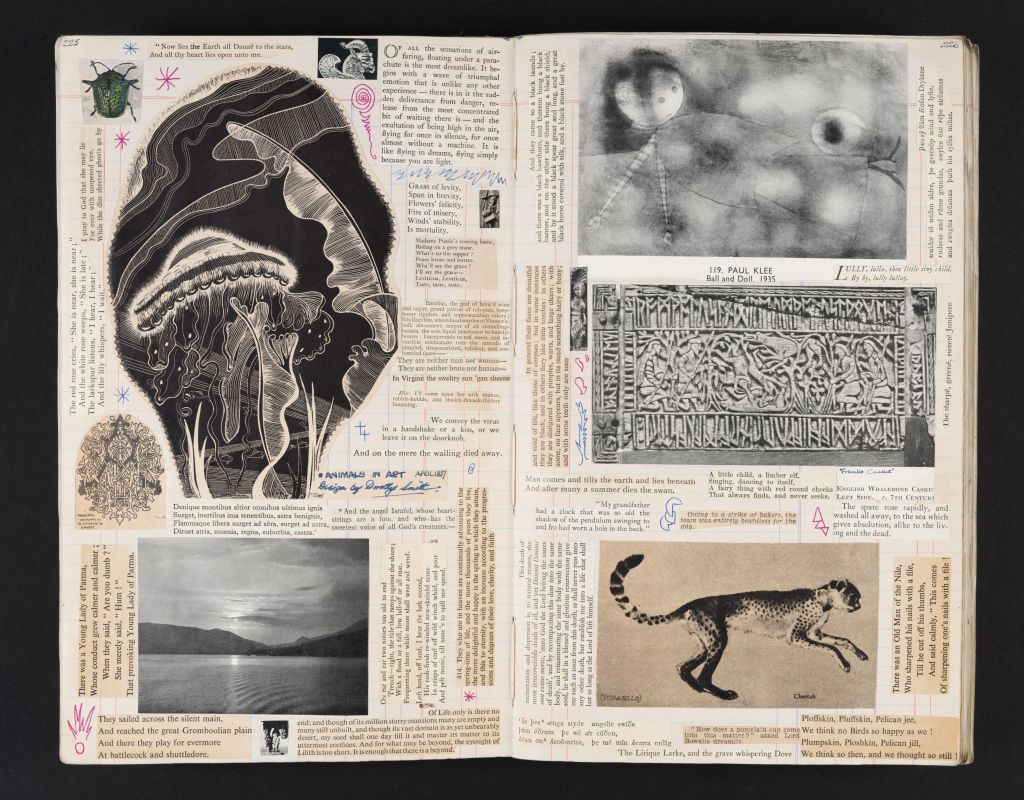
Putting together the blogpost and going back over my research notes made me realise just how much I had to say about Morgan’s scrapbooks. If Morgan’s desire for his translations of medieval texts was that ‘the nerves must sometimes tingle and the skin flush’, this had certainly been the effect on me of the visio-verbal scrapbooks and collages. Perhaps I will try and find another venue to write about the inspiration my research with Morgan provided for my own evening collage sessions in Glasgow.
